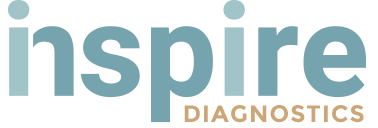What Parents Need to Know About the Baby Formula Shortage
Updated on June 6, 2022

Key Takeaways
- Baby formula shortages across the country have parents struggling to feed their babies.
- It’s not clear what the cause is, but companies are dealing with supply issues related to the COVID-19 pandemic.
- You may need to widen your search for your usual formula brand or consider alternatives for feeding your infant.
Parents across the U.S. are struggling to get their hands on baby formula, including brands like Similac and Enfamil. According to an analysis by Datasembly, the out-of-stock rate on baby formula was 31% in April 2022, up from 11% in November 2021.1 It’s natural for parents to panic when they can’t buy their baby’s food. And switching brands isn’t always easy, particularly when babies have allergies, sensitivities, or digestive issues and can only tolerate certain types of formula.
UPDATE, MAY 16
On May 12, President Joe Biden’s administration released a plan to address the formula shortage. The President met with large national retailers and manufacturers, including Wal-Mart, Target, and Gerber, to discuss solutions. These include simplifying product offerings, expanding the products that WIC benefits cover, cracking down on price gouging, and increasing formula imports to boost supply.
UPDATE, May 19
On May 18, President Joe Biden announced that he was invoking the Defense Protection Act in an effort to increase formula supply. Invoking this 1950 law means that the federal government is prioritizing the production of key formula ingredients, and compelling suppliers to provide resources to formula manufacturers before they supply any other companies.
In addition, President Biden announced Operation Fly Formula, which directs the Department of Health and Human Services (HHS) and the U.S. Department of Agriculture (USDA) to use Department of Defence (DOD) commercial aircraft to import infant formula that meets U.S. health and safety standards.
Finally, on May 16, formula manufacturer Abbott reached a deal with the Food and Drug Administration (FDA) to take corrective action in its Sturgis, MI factory. This means there are steps in place to reopen the factory and begin production of infant formula once again.
UPDATE, June 6
On June 4, Abbott Nutrition reopened its factory in Sturgis, MI after meeting the requirements set out by the FDA. The company has said that it will take two weeks for production to fully resume, and another six to eight weeks for formula to hit shelves. The company will begin production with EleCare, a formula for infants with dietary restrictions and allergies, before moving on to other products. Abbot expects to release EleCare to consumers on or around June 20.
Why Is There a Baby Formula Shortage?
The answer is multifaceted. The COVID-19 pandemic has strained global supply chains, induced labor shortages, and increased demand for many products. On top of that, the ongoing conflict in Ukraine and related international sanctions have made certain products scarce.
The formula shortage was further exacerbated when Abbott recalled batches of its Similac formula and subsequently shuttered a factory in Michigan per FDA direction.
How Are Companies Responding to the Formula Shortage?
In response to the shortages, some manufacturers have asked parents not to stockpile formula as it further reduces in-store and online inventory. Abbott Laboratories, who make Similac formula, tweeted, “We are doing all we can to ensure ongoing and consistent distribution of our products. We encourage families to purchase only what they need to ensure that all families are able to access these critical products to feed their babies.” On Twitter, an Enfamil customer-service representative told concerned parents that the company is “experiencing obstacles in the production and shipping of some of our products as the pandemic continues to cause issues with the supply chain.”
The Infant Nutrition Council of America further acknowledged supply issues in a statement: “Broadly, there are reports of challenges across retail supply chains, from transportation and logistics to some anecdotal evidence suggesting pantry-loading behaviors, which can put increased pressure on in-store inventory.”
For families who cannot breastfeed or choose not to breastfeed, feeding your infant with baby formula is the best and recommended way to assure the child safely receives all the necessary nutrients for proper growth and development.
Why Formula is Critical
“For families who cannot breastfeed or choose not to breastfeed, feeding your infant with baby formula is the best and recommended way to assure the child safely receives all the necessary nutrients for proper growth and development,” says Adrianna Bravo, MD, FAAP, pediatrician and senior medical advisor for Inspire Diagnostics.
Formula is a safe and effective way to feed and nourish a baby, so access to formula is extraordinarily important, says Kelly Fradin, MD, pediatrician and author of Parenting in a Pandemic: How to Help Your Family Through COVID-19.
“During the first year of life, a baby triples in weight, grows 50% longer, and the brain doubles in size,” Dr. Fradin explains. “Babies are more vulnerable to infection due to the immaturity of their immune system, so formula that is free of contamination by pathogenic bacteria is of utmost importance.” Also, a baby’s kidneys aren’t yet fully developed, and the balance of electrolytes and nutrients provided via formula is essential to prevent dangerous consequences like seizures.2
What to Do If You Can’t Find Formula
Dr. Fradin advises parents to ask for help when they have difficulty finding the formula they need. Pediatricians often have some stock supply for emergencies or may be able to direct families towards community resources for formula. On instagram, @theformulamom has established a message board to connect parents with supply. Many local Facebook groups are facilitating swaps, too.
“While it’s not ideal, many babies can switch to a new formula if their typical formula isn’t available. Infants on hypoallergenic formula may also benefit from a newly available, more cost-effective store brand hypoallergenic option,” Dr. Fradin says.
One of the most important things is that parents don’t water down formulas, because overly diluted formulas aren’t safe.3 Homemade formulas, toddler formulas, and cows milk are not adequate substitutes.
Dr. Fradin says parents should seek help before offering alternatives. “Before six months, formula and breast milk are really the safest options for feeding your baby,” she says. “Between six and 12 months, while babies can have some water and foods, formula provides iron essential to brain growth and a healthy balance of protein, carbohydrates, and healthy fats fortified with other nutrients.”
By age six months, most infants can begin eating certain solid foods prepared in an age-appropriate way.4 “Eating foods will lessen the demand the body has for nutrients in the formula, allowing the infant the leeway to intake less formula,” says Dr. Bravo. “Talk to your pediatrician or health care provider about supplementing with foods.”
When a baby is nearing a year, offering more food is an option, but Dr. Fradin still likes to see around 18 oz of formula a day. “One of the most important things is that parents don’t water down formulas, because overly diluted formulas aren’t safe,” she warns. “Homemade formulas, toddler formulas, and cows milk are not adequate substitutes.”
Dr. Bravo agrees that the infant’s safety has to be the main priority. “Do not make your own baby formula at home,” she says. “Formulas are prepared with very specific and careful consideration to infant nutritional needs, which are not easily calculated or created using standard ingredients and products found in most homes. Feeding an infant an imbalanced formula can be unsafe to the health and wellbeing of the infant.”
If there is a formula to be found, but not your preferred brand, you might consider a short-term switch to the available brand. “Talk to your pediatrician or care provider about how to make the switch in a way that is safe and comfortable for the baby and you,” says Dr. Bravo. “Often a gradual transition works well, and your provider can provide that guidance.”
What This Means For You
If you’re struggling to get your baby formula from your usual place, try other places like small business pharmacies, drug stores, and even children’s clothing and baby supply shops. Try talking with the managers of your go-to larger pharmacy, grocery, or store to find out when shipments typically come in and prepare to visit the store at that time.
Food banks, church food pantries, and child and family social service offices often keep baby formulas on hand and are typically very eager to support a family and infant in need.
Talk with your pediatrician, health care provider, or local urgent care offices—they often have samples to give out. If these options have been exhausted and it’s still impossible to get formula, you can go to the local hospital or emergency room where your baby can be given formula or proper nutrition to be kept safe.


:max_bytes(150000):strip_icc():format(webp)/Claire_Gillespie_headshot-649830869f1e4a4ca8979b90a304ffa0.jpg)
